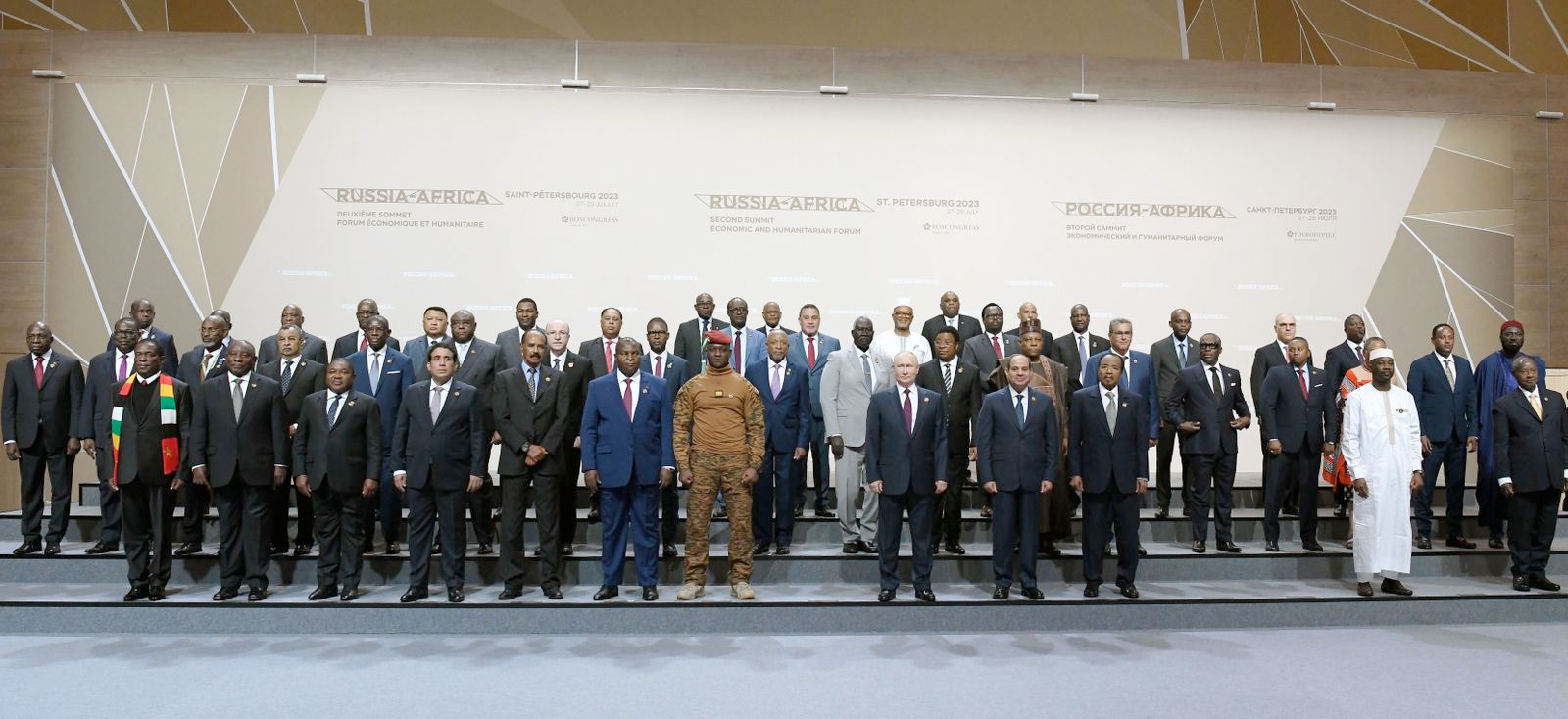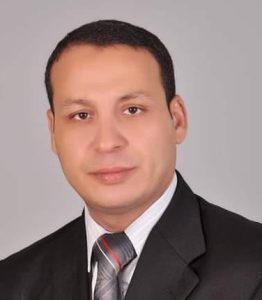The second Russian-African summit took place in Saint Petersburg over two days, on July 27th and 28th. Notably, this summit occurred shortly after Moscow’s decision, on the 17th of the same month, to withdraw from the grain export deal through the Black Sea. The deal allowed Ukraine to export grains from its ports on the Black Sea, but Russia expressed dissatisfaction with the arrangements concerning grain and fertilizer exports. In response to their grievances, Moscow launched missiles at the Ukrainian port of Odessa, where grains were being stored.
The Russian actions have sparked increasing concerns among African nations regarding the potential impact on food security and food prices. For instance, Kourir Sing’Oy, a senior official in the Kenyan Foreign Ministry, characterized Moscow’s withdrawal from the agreement as a “stab in the back,” given that African countries seem to bear the brunt of this decision. The soaring food prices have even triggered riots in some of these nations, Kenya being one of them.
The convening of this summit coincides with the recent rebellion of the “Wagner” group, which raises several questions about Russia’s future security policy towards Africa. While “Wagner” group leader Yevgeny Prigozhin pledged to increase focus on African operations, his apparent disagreement with Russian President Vladimir Putin could significantly impact Russian security policy. This is especially relevant as both Western and African critics scrutinize the role played by “Wagner.”
The challenges encountered in cooperation and security coordination between the Malian army and “Wagner” elements during counterterrorism operations may lead the Kremlin to explore alternative options and adopt more conventional approaches to enhance security cooperation with friendly African countries allied with Russia.
Multiple Implications
Multiple implications arise from the convening of the second Russian-African summit, which can be discussed as follows:
- Highlighting Russia’s Political Weight: The 2023 Russian-African summit drew significant attention from Moscow, especially amidst the escalating Russian-Ukrainian conflict and mounting Western pressure. In response to Western isolation following its military operations in Ukraine in February 2022, Moscow sought to strengthen its ties with Africa. The Saint Petersburg summit provided a valuable opportunity for Moscow to showcase that it is not isolated and has willing partners eager to deepen cooperation.
Furthermore, Moscow aims to gain support from more African voices within the United Nations, particularly as Russian military operations in Ukraine persist. Concurrently, Russia is coordinating its efforts with China to advocate for a multipolar system and establish international alliances and blocs that align with its global policies.
- Increasing Role of Grain Diplomacy: Russian President Vladimir Putin is eager to assure African nations that his country will compensate for the withdrawal from the grain export agreement through the Black Sea. This implies that Moscow will persist in employing what can be referred to as “grain diplomacy” as a means to bolster its influence within African countries. Russia intends to present itself as a “friend” to certain African nations by announcing the possibility of resuming grain supplies.
In this context, President Putin announced that Russia is prepared to supply grains to six African countries within the next three to four months. These countries comprise Somalia, Burkina Faso, Zimbabwe, Mali, Central Africa, and Eritrea. Observers perceive that Moscow is employing this strategy as a way to attain political advantages by incentivizing some African nations to align with its policies within the United Nations, especially when facing Western countries.
- Supporting Economic Influence in Africa: During his speech at the summit, President Putin emphasized Russia’s commitment to bolstering economic relations with Africa, highlighting the rapid growth in trade volume. He announced mutual agreement between Russia and Africa to enhance trade both in quantity and quality, with a shift towards settling transactions in national currencies, including the ruble. Moreover, President Putin mentioned that Russian companies are willing to facilitate technology transfer in public administration and the banking sector to benefit African countries.
Based on these measures, several trends indicate that Moscow’s objective is to increase its economic influence within the African continent in the upcoming phase, thereby strengthening its position against Western countries that seek to counter Russian actions on the international stage.
- Growing African Aspiration to Strengthen Their Role: This sentiment was evident in the statements made by African leaders and delegations during the summit. The primary focus of African demands revolved around attaining fair representation for Africa in international institutions, with a particular emphasis on the United Nations. This aligns with the ongoing calls from Russia and China to establish a multipolar international system, aiming to manage their interactions with the United States, which they perceive as the dominant global power. This alignment is increasingly relevant as disputes between the two sides have escalated in recent times.
Certainly, this inclination is also tied to the endeavors of certain African countries participating in seeking a resolution for the Russian-Ukrainian conflict. They believe that such a settlement could mitigate the adverse repercussions it has had on the international stage. On June 16th, a group of African countries presented an initiative to mediate in the crisis between the two nations. A delegation from these countries, led by South African President Cyril Ramaphosa, visited Kyiv and Moscow to encourage both parties to engage in negotiations and resolve the crisis through peaceful means.
Various Challenges
However, it can be said that Russia’s efforts to expand its relations with African countries face several challenges, including the following:
- Implications of Russian Policy on Food Security: Many observers are skeptical about Russia’s capacity to substantially assist certain African countries by providing additional supplies and thereby demonstrate its reliability as a partner unless the Black Sea deal, which also enables Ukrainian shipments to those countries, is reinstated. Although President Putin confirmed that Russia shipped approximately 11.5 million tons of grain to Africa in 2022 and nearly 10 million tons in the first half of the current year, this does not dispel the concerns raised about Russia’s ability to sustain this approach, particularly if the war in Ukraine persists despite efforts to reach a settlement.
- Emergence of Anti-Russian Sentiment in Africa: African countries do not adopt a unified or consistent policy towards Russia. Many of these countries perceive Russia’s actions in Africa as potentially exacerbating crises, particularly in terms of security, given the influence wielded by the Russian “Wagner” group in countries like Mali. Several parties have voiced clear criticisms of Moscow in this regard, expressing concerns that its actions could undermine the capabilities of government forces in some countries to confront terrorist threats. This is particularly evident in Mali, where the country insisted on the withdrawal of UN peacekeeping forces (MINUSMA), potentially leading to new repercussions on the ground that terrorist organizations might exploit to strengthen their influence and escalate their operations.
- Impact of Parallel Western Moves: It seems evident that Western countries will persist in their endeavors to strengthen bilateral relations with numerous African countries as part of their strategy to counterbalance Russia’s actions in the region. This approach is evident in the visits made by various American officials to African nations, such as Secretary of State Antony Blinken, who embarked on an African tour in mid-March, visiting Ethiopia and Niger. This marked his third visit to the continent since assuming his position, signifying the continuous engagement of Western nations with African states.
Sustaining the Course
In conclusion, the second Russian-African summit provided Russia with an opportunity to establish a fresh framework for strengthening its relations with African countries, with the aim of achieving mutual benefits for both parties. This direction is expected to persist in the upcoming phase, particularly given the ongoing Russian-Ukrainian conflict and the lack of indications of a near-future political settlement. As positions continue to diverge and differences widen among the countries involved in this war, the pursuit of these relations remains significant for both Russia and African nations.


